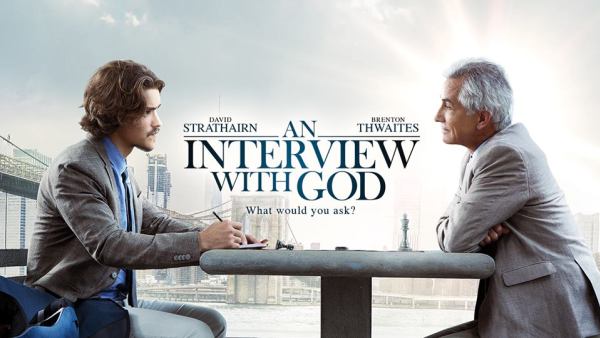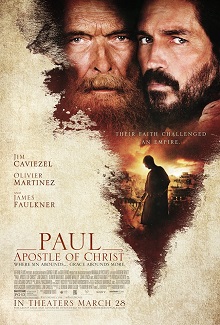 By Meanne M. Mijares
By Meanne M. Mijares
Sitting down, Jesus called the Twelve and said,
“Anyone who wants to be first must be the very last, and the servant of all.”
Mark 9:35 (NIV)
So the last shall be first, and the first last: for many be called, but few chosen.
Matthew 20:16 King James Version (KJV)
Cast
Ryan Gosling … Neil Armstrong
Claire Foy … Janet Armstrong
Jason Clarke … Ed White
Kyle Chandler … Deke Slayton
Corey Stoll … Buzz Aldrin
Patrick Fugit … Elliot See
Christopher Abbott … Dave Scott
Ciarán Hinds … Bob Gilruth
Olivia Hamilton … Pat White
Pablo Schreiber … Jim Lovell
Shea Whigham … Gus Grissom
Lukas Haas … Mike Collins
Ethan Embry … Pete Conrad
Brian d’Arcy James … Joe Walker
Cory Michael Smith … Roger Chaffee
Kris Swanberg … Marilyn See
Directed by Damien Chazelle
Screenplay by Josh Singer
Based on the book by James R. Hansen
Distributed by: Universal Pictures
Genre: Drama
Rating: PG-13
First Man is Oscar-winning director Damien Chazelle’s (La La Land) serious, fact-based movie about distinguished astronaut Neil Armstrong. It’s set during the stormy decade leading up to his significant Apollo 11 moon mission. Ryan Gosling stars as Armstrong, the smart, brave, strong-minded, extremely enduring engineer-pilot-astronaut who endured to eventually become the first person to walk on the moon. Along the way, he and NASA must get through life-threatening circumstances including mission fiascos, hazardous test flights, and even the demise of esteemed team members — but this is more of an crafty character study than an Apollo 13-style page-turner. Expect social drinking, chain smoking, infrequent but memorable swearing (including “s–t,” “damn,” and one “f—ing”), and several tense, sad scenes of characters in danger. A child’s passing isn’t presented, but the impression is clear. Claire Foy co-stars as Armstrong’s wife, Janet, who has a bigger role here than many “NASA wives” in relatedly themed films. Some scenes were shot with a handheld camera in a way that can be quaking.
THE STORY
FIRST MAN is Academy Award-winning Damien Chazelle’s film bio about Neil Armstrong (Ryan Gosling). It took place between the years 1961 and 1969, those years that took Armstrong from being a test pilot in California to a groundbreaking NASA astronaut in Houston to the first person to walk on the moon. While he’s still flying planes in the Mojave desert, Neil and his wife, Janet (Claire Foy), suffer the loss of their daughter, Karen, who dies from brain cancer. Neil is then employed to officially join NASA’s space program in Houston. There, he and Janet make friends with the other astronauts, like Ed White (Jason Clarke), Elliott See (Patrick Fugit), and Jim Lovell (Pablo Schreiber), and their families as the men go on board on often precarious missions be in charge of up to the race to the moon.
Positive Messages
The film celebrates traditionally American values such as competition, pioneering spirit, courage, teamwork, hard work — all of which came into play to win space race to moon. It depicted how Armstrong’s humility, quiet strength, determination helped make Apollo 11 a fruitful mission.
Positive Role Models & Representations
Armstrong is a keen, brave, strong-minded engineer, pilot, and astronaut. He loves his wife and children but is also focused on his NASA mission. The astronauts are kind, reassuring, even though they’re also vying for slots on the moon mission. Janet is a caring, enduring, loving wife and mother.
Violence
More than a few deaths occur due to mission/equipment failures – and they take place off camera. In one case, lead-up to the deaths is shown, with astronauts worrying, yelling for help as fire breaks out. There were edgy scenes in which astronauts in space have to prevail over troubles that could have life-threatening results. Karen’s death is veiled; her petite casket is shown during a wake.
It is natural that a married couple dances, embraces, kisses but done in good taste. I have observed occasional strong language includes “holy s–t,” “damn,” “screw,” “jackass,” “hell,” “Jesus Christ!,” and one “f—ing.” I have also seen adults drink beer at a couple of get-togethers/dinners while some adults do chain-smoke.
CONCLUSION
Gosling gives an excellent feat as the thoughtful, intelligent space pioneer in this warm, primordial but thoughtful biopic. Chazelle’s adaptation of James R. Hansen’s novel of the same title First Man: The Life of Neil A. Armstrong is a very personal discovery of Armstrong’s life in the 1960s. The movie opens with a uncomfortable, terrifying, dizzying test flight on the rocket-powered X-15 — a scene that’s contrasted with a upsetting sequence in which it’s clear that Neil’s little girl is ill. After her death, Neil hardly lets anyone see him break down, and that impassiveness about loss lasts throughout the years as he endures the death of his fellow pilots and astronauts who weren’t only colleagues but good friends. Gosling is a masterful thespian: one who never overacts and seems to truly comprehend the art of restraint. It helps that Armstrong isn’t an alpha male space herdsman or an go-getting and outgoing like Buzz Aldrin (Corey Stoll); he’s humble, hardworking, and at times emotionally aloof.
Although the movie offers plenty of nail-biting moments and picturesque cinematography (especially in the space/rocket scenes), this character study isn’t as similar to Apolllo 13, Gravity, or The Right Stuff as moviegoers might expect. Chazelle keeps the film focused only on the two Armstrongs, without trying to pick up every major event or figure involved in the space race. Unlike many other fact-based films about that time, which only cursorily include the astronauts’ wives, Chazelle gives Foy’s Janet plenty of screen time as the wife left behind to keep the house spic and span, calm down her frazzled nerves, and hope that her husband doesn’t become another NASA fatality. The film is buoyed by an excellent supporting cast and production and creative teams — First Man attests that Neil Armstrong is a uniquely self-effacing and modest celebrity and that Chazelle is one of the most multitalented filmmakers.
Overall, I rate the film 4 out of 5 stars.










